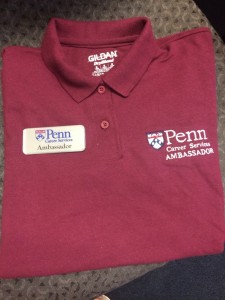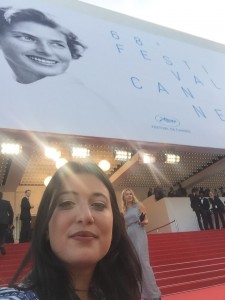This is the next in a series of posts by recipients of the Career Services Summer Funding grant. We’ve asked funding recipients to reflect on their summer experiences and talk about the industries in which they’ve been spending the summer. You can read the entire series here.
This entry is by Jonathan Sanchez, SEAS ’16
 October 17th, 2014 was a regular school day in the midst of my busy junior year schedule. On this day I received was from the Undergraduate Chair of the Mechanical Engineering department. The email was notifying all mechanical engineering students of an opportunity to work with a surgeon from HUP who was looking for an engineering student to help him develop an idea he had for a medical device that would be used to prevent hernia. After reading the project description, I honestly thought that this opportunity was too good to be true. I felt that there would be so many interested students, that it would be a waste of time for me to even try to get involved. After speaking to some of my friends, I decided that it wouldn’t hurt to send the surgeon an email simply explaining my interest in the project, so I did just that. Little did I know that this decision would end up changing the course of the rest of my Penn career and would even change my post-graduation plans.
October 17th, 2014 was a regular school day in the midst of my busy junior year schedule. On this day I received was from the Undergraduate Chair of the Mechanical Engineering department. The email was notifying all mechanical engineering students of an opportunity to work with a surgeon from HUP who was looking for an engineering student to help him develop an idea he had for a medical device that would be used to prevent hernia. After reading the project description, I honestly thought that this opportunity was too good to be true. I felt that there would be so many interested students, that it would be a waste of time for me to even try to get involved. After speaking to some of my friends, I decided that it wouldn’t hurt to send the surgeon an email simply explaining my interest in the project, so I did just that. Little did I know that this decision would end up changing the course of the rest of my Penn career and would even change my post-graduation plans.
After reviewing my resume and calling me in for an informal interview, Dr. Fischer called me to discus the project more in depth and to discus how we would be working together in the upcoming weeks. I was completely shocked. I was now fully involved in this amazing opportunity that just a few days ago seemed so far off and nearly impossible.
Over the next few weeks, Dr. Fischer outlined his ideas and explained some of the medical implications behind the proposed device. Although I cannot get into the details of the project because there is intellectual property behind it, the gist of it is to design and prototype a device that automates and standardizes the affixation of prophylactic mesh (a material often used in abdominal surgeries) onto the abdominal wall in order to prevent hernias from forming in patients who are at high risk.
After I spent several months figuring out the mechanics of the device and creating many 3D CAD models, Dr. Fischer decided to offer me a summer internship position to continue working with him on developing the technology and ultimately prototyping the device. During the summer, I made huge leaps in progress, not only in developing this technology, but also in progressing in my career as a future engineer. Dr. Fischer hired a professional engineer to serve as my mentor throughout the summer and through the guidance of my mentor, I was able to master a new, more powerful CAD program and use that program to design and 3D print our first prototype of the device. In addition to this, we also got a chance to run biomechanical tests of the device that I designed on cadaveric porcine fascia. The results of the tests were very positive with only some minor changes needed to be made. It was a truly remarkable experience to see the countless hours of work that I had put into this project finally manifest into tangible results.
The feedback that Dr. Fischer and I got from people in academia and in the medical field was incredible, so much so that Dr. Fischer founded a company, Paradigm Surgical, LLP, in order to give us a platform to continue to develop the device and hopefully mass produce it for use in hospitals across the country. In addition to this, with the help of IP personnel at Penn, we were even able to apply for a provisional patent for the innovative technology that we developed.
Dr. Fischer and I were also accepted and partook in the Penn I-Corps program. Through this 8-week summer accelerator program, we learned how to most effectively facilitate the growth of a start up such as Paradigm Surgical. It was extremely rewarding to be able to sit in on lectures from esteemed Wharton professors and learn about innovation from the business point-of-view.
Overall, this summer was absolutely amazing! I learned more about the engineering field than I ever thought I would in a 3 month span and, even more importantly I found a new passion for medical device design. I have continued to work with Dr. Fischer on our hernia project and on several other innovative medical technologies. I now plan on pursuing a career in this field after graduation.
It is amazing how a simple email could turn into such an extraordinary, life-changing opportunity. Even more importantly than all the technical and business lessons I learned this summer, this experience has taught me a life lesson, and that is that no opportunity is ever too good to be true.




